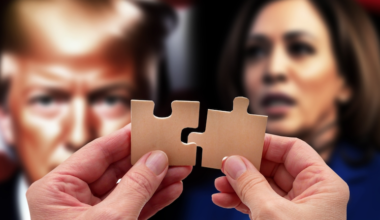In the U.S., the Food and Drug Administration (FDA) approves medications for specific health issues. When a doctor prescribes a drug off-label, they’re recommending it for a condition or at a dosage that differs from the FDA’s approval.
This essentially means using an approved drug in an unapproved way. This often occurs when a person’s health condition lacks an approved treatment, or when the approved treatments are deemed ineffective. Convinced that doctors know better than the FDA, which is a major U.S. government agency, some physicians will prescribe a medication that they think works better.
What’s really intriguing is that this off-label drug use is not uncommon, accounting for approximately 20% of all prescriptions in the U.S. Globally, this number balloons to as high as 91% in the pediatric population and 41% in the adult population.
How is this related to innovation?
Like drugs, tech solutions can often serve many purposes outside their designed use. For example, did you know that people often use Apple’s EarPods Pro as hearing aids?
Apple’s earbuds, designed for music and phone calls, are becoming increasingly repurposed as an alternative to traditional hearing aids, which can be expensive and often aren’t covered by insurance.
Apple’s EarPods Pro, with their high-quality sound, noise cancellation, and the clever “Live Listen” feature, can essentially transform into a reasonably high-quality hearing aid when paired with an iPhone. As an additional benefit, they look cool when worn. The same goes for using baby powder as dry shampoo, using Coca-Cola as a rust remover, or applying baking soda for teeth whitening.
The only difference is that, unlike drugs, there’s no board certified expert prescribing unconventional uses for ketchup to polish copper.
The immigrant mindset hidden gem
Sometimes, innovation is simply about having knowledge that others don’t, and about doing more with less. That’s where American doctors and founders differ from those in other countries. America is a very mature market on many fronts, with many specialized tools for specific purposes.
Living in the U.S. I would never use a knife to open canned food, however when I served in the Peace Corps, my can-opener was a knife.
In many places innovation is a necessity, not a luxury. Lack of tools keeps you hungry for solving problems, the same problems that don’t exist in the U.S. And this mindset is a hidden gem that often gets discounted in immigrant founders.
Foreign-born entrepreneurs, especially from developing economies, definitely do more “off-label innovation.” I’ll leave it up to you to decide if this form of innovation is a startup.
Is off-label innovation genuine?
Using Apple’s EarPods Pro as hearing aids is a creative solution that can be a game-changer for those who can’t afford traditional products. But this also means that people might be self-prescribing a solution without the expertise of an audiologist.
They might be missing out on crucial services such as personalized hearing assessments, fine-tuning, and long-term follow-up care. While EarPods Pro can amplify sound, they are not specifically designed to address different types of hearing loss.
Thus, people may not be getting the optimal auditory assistance they need. Actually, using non-traditional hearing aids might damage your hearing, just like my knife can-opener damaged my fingers.
In addition, relying on off-label usage might create legal and ethical issues. If a product fails to perform its off-label function, who is accountable?
If Coca-Cola doesn’t remove rust as expected, or if the EarPods Pro fails as hearing aids, it’s the user, not the producer, who bears the risk. This lack of accountability is a significant difference compared to products specifically designed for certain uses.
Innovation typically involves the creation of something new or improved that adds value. Off-label use is often simply repurposing an existing product for an unintended use.
Having the “off-label use” mindset could potentially undermine the process of innovation. For instance, if EarPods Pro are widely accepted as a hearing aid alternative, this could discourage further innovation in the hearing aid industry.
If off-label use becomes the norm, it might diminish the incentive for companies to develop new products tailored to specific needs. However, simultaneously, the creativity sparked by off-label use could serve as a catalyst, pushing companies to surpass the unexpected uses discovered by their customers. After all, it’s the quintessential role of an entrepreneur to do more with less.








